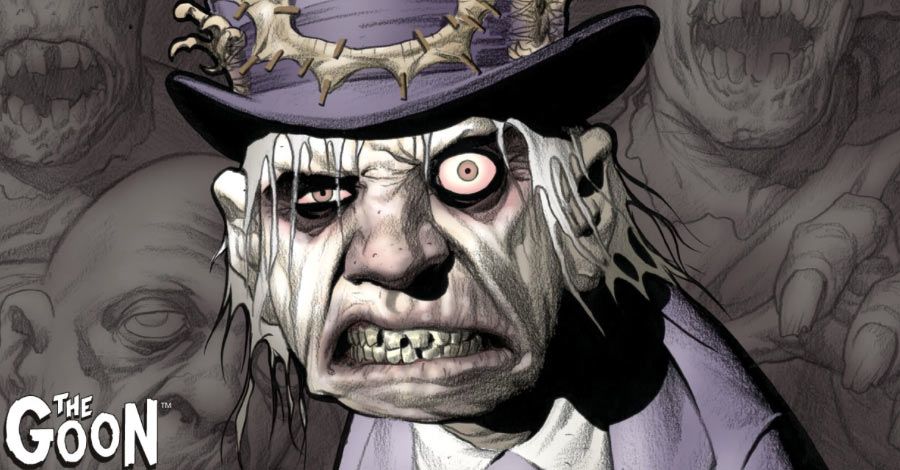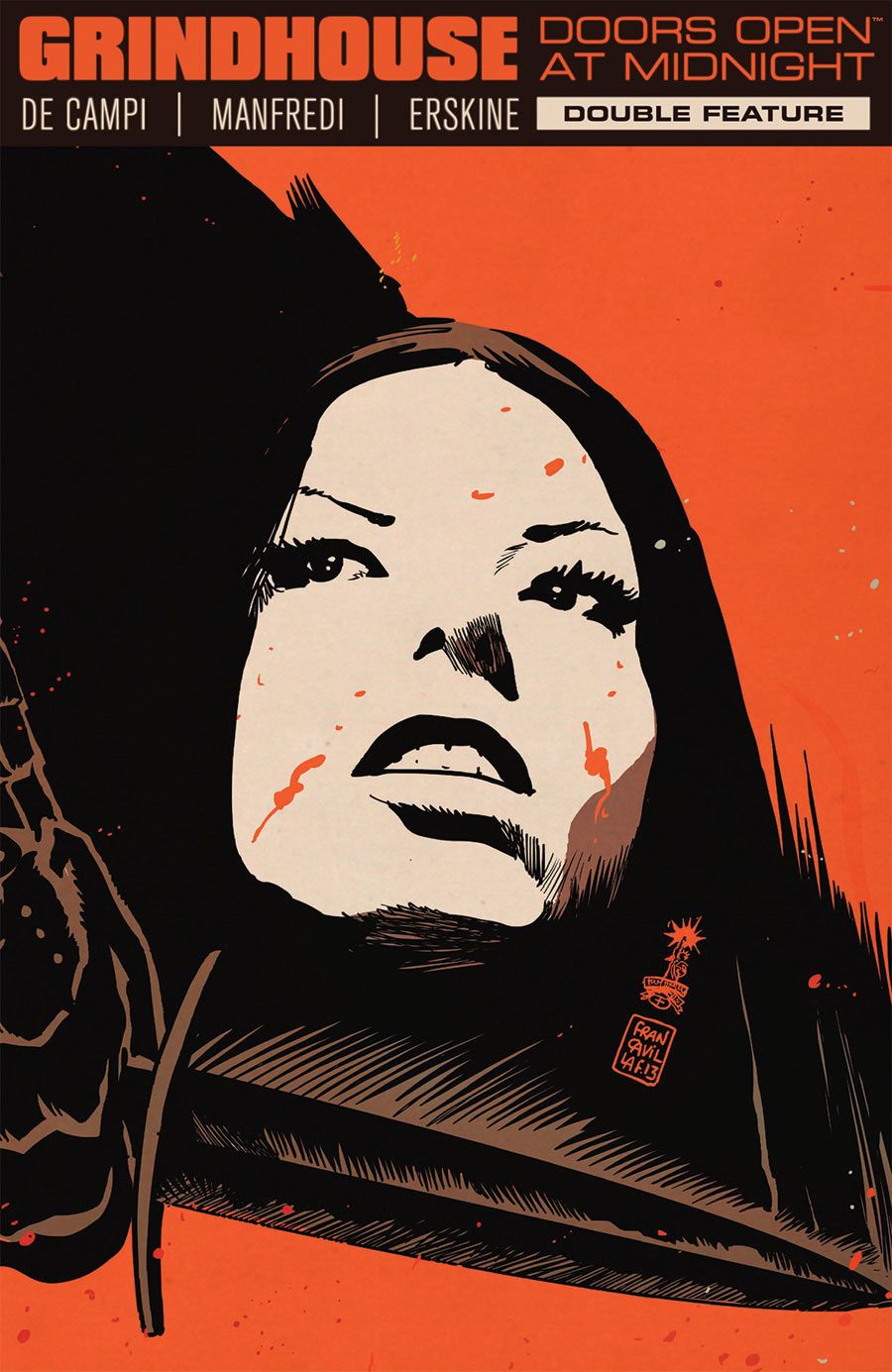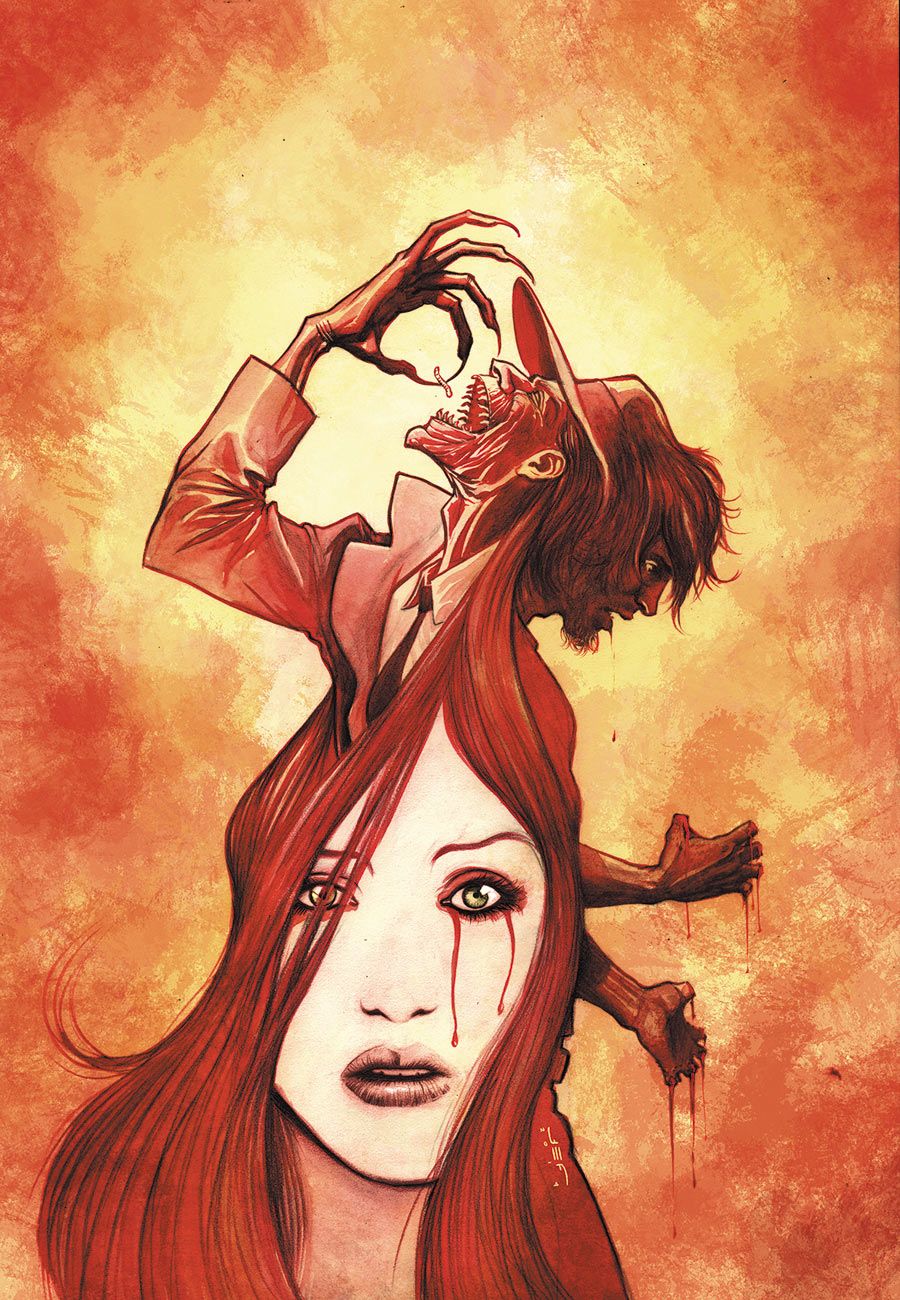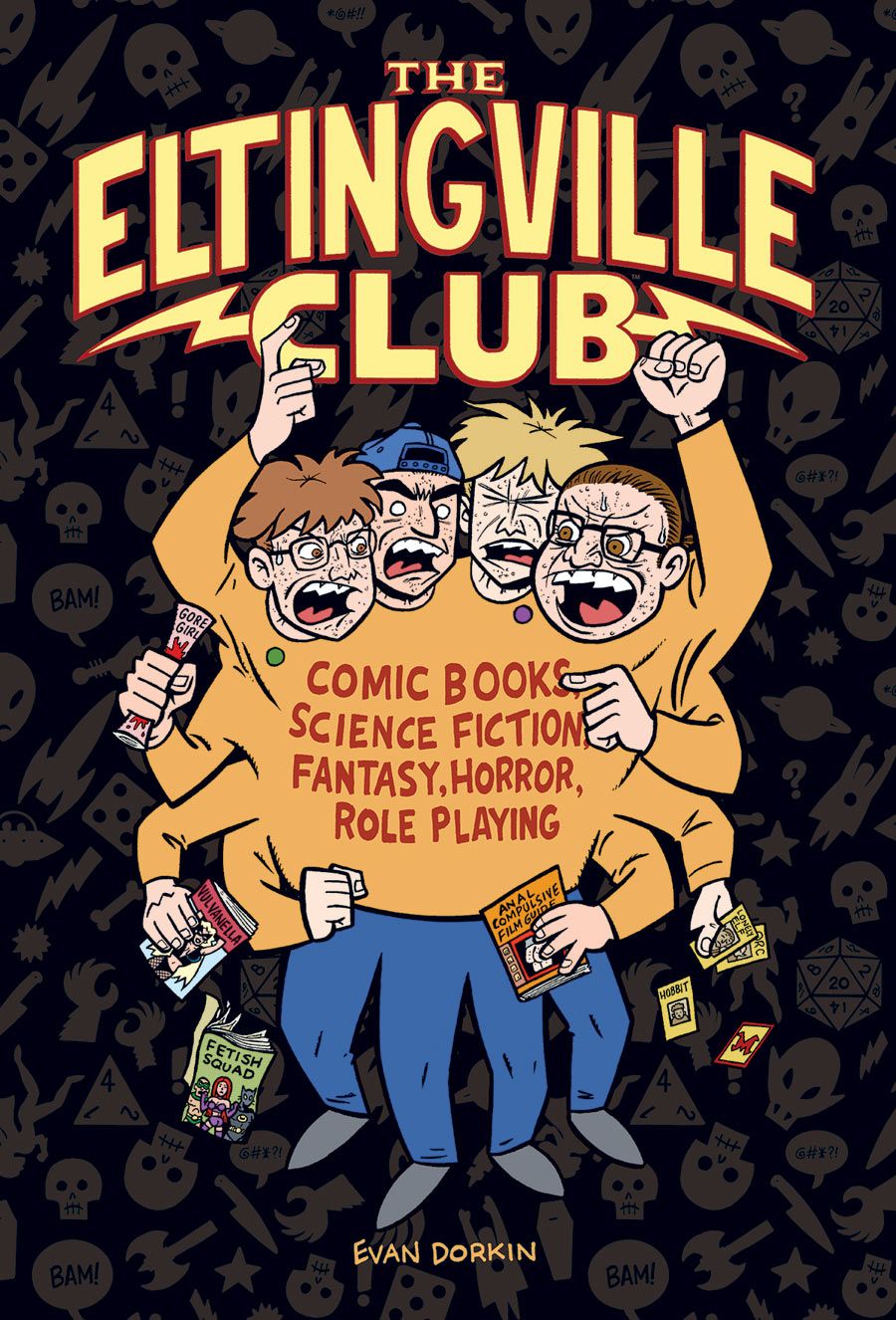What was to be a panel celebrating 15 years of "The Goon" became a discussion about horror at New York Comic Con. The character's creator, Eric Powell was unable to be present, so publicist Aub Driver moderated a panel of Dark Horse creators including Alex de Campi, Paul Tobin, Evan Dorkin and Tim Seeley.
While not in NYC in person, Powell did send a video message for his fans. "I'm kinda known for building up this sorta crazy, redneck, hard-drinking persona, and some people think I'm scary to come up to at conventions because of that. But I wanted to drop that for a second and tell you guys how much I genuinely appreciate all of your undying support. You really make it possible for me to do the book the way I want to do it and get up every morning and have a dream job, basically. Really, from the bottom of my heart, thank you very much."
From there, the panelists quickly moved into a discussion about writing horror comics. de Campi asked Tobin, "Do you ever get, like -- how do you write 'Bandette' and 'Colder' at the same time?" She said that she was often asked how she manages to write both "My Little Pony" and "Grindhouse," to which she answers, "Because I'm not a boring motherfucker."
Seeley explained the premise of his new ongoing series, "Sundowners," calling it "a horror superhero book." "We have people who dress up in costumes and run around their neighborhoods trying to help their neighborhood. These people all realize they're seeing the same thing, which is some kind of weird glowing skull people. So they go to their support group and they want to fight these alien invaders. But the question is, are they crazy, or are they actually seeing weird alien invaders? So it's a little bit of a horror comic, a little bit of a superhero comic, it's also kind of light and funny in parts, it's a little bit dark and twisted in parts."
Tobin talked about his inspiration for ongoing book "Colder." "I used to run a science section at a bookstore, and I got really involved in neuroscience and the way brains work. And that kind of linked up with what I love about horror, which is the fear of the unknown and how the mind perceives things. So the story of 'Colder' starts in an insane asylum because -- I don't know if people know this, but when hallucinogenic drugs were first getting explored, one of the ways they did it was to say, 'Hey, nobody cares about crazy people, let's just jack them full of drugs and see how they react.' And apparently people acted crazier. So in the story of 'Colder,' what we call The Hungry World opens up. The story is about insanity and what it does for you."
For the next series, he said, "We're introducing a new villain, which is a really creepy guy based on fingers. I once saw a guy get his finger lopped off, and that's lived with me. It was one of those classic moments in shop, where the shop teacher was saying, 'Be careful on the circular saw, don't do this, and don't do this,' and then there was this scream from behind and one of my friends had just lopped his finger off. And, um, it was weird." The first issue of "Colder: The Bad Seed" came out on October 22.
"They're the worst of fandom, and my problems with fandom," Dorkin said, describing his "Eltingville" cast. "The second issue is also my problems with the professionals, because the fans become the professionals. It was always my goal to get into that sort of thing. In the last issue, which takes place at San Diego Comic Con ten years after the current issue, it's the final battle. This is about obsession and insanity and misogyny and sexism and homophobia and racism. It wasn't originally about that; it was just about the worst of fandom. My publisher at the time was getting death threats in 1993 because he killed off a tertiary character on the Justice League. Now, first of all, you can't kill off fictional characters, they don't live. Second of all, you can't kill off any characters at Marvel or DC or anywhere, because then you can't keep the copyright. So don't so send death threats to anybody for knocking off a character, especially these days, because they come back. Death of Wolverine -- yeah, right. It's the death of your wallet and the death of interest in mainstream comics for me. Anyway, these are the people who get into comics. It's based on me and my friends from the '80s, it is exaggerated, but unfortunately a lot of the things that are happening in this book are being paralleled by what's going on online, if you're following things like Gamergate. I mean, people will not believe that I wrote this, plotted this, 13 years ago. They think that I'm going with the gestalt of what's going on online, with people fighting like lunatics and screaming over female Thor and crapping up their lives with fictional nonsense." One issue of "The Eltingville Club" came out in April, with a trade paperback planned for the near future.
As for his other Dark Horse series, Dorking simply stated, "If you like 'Beasts of Burden,' I don't know what's going on. Sorry."
"['Grindhouse' is] pretty much what it looks like, which is gore and boobs and exploitation horror and trash. We're bringing trashy back," de Campi said of ehr series, which is comprised of short, two-issue stories inspired by exploitation films. "I got really tired of how the language of exploitation horror was used and co-opted by mainstream comics. I was just like, the way you guys do this is so boring, it's so sad and boring, and there's no fun, there's no love... The thing about watching [grindhouse] films when you're growing up is, you're really not supposed to be watching them and they're really exciting. Like, you go with your friend and maybe you actually have beer, even though you're like 14, or worse, peach schnapps and then you vomit everywhere in your friend's car.
"When you see all the misery porn in DC and Marvel, it's not fun," she continued. "And it's usually like, there's a major readership group who is the punch line of that misery porn. It's a gay character, it's a female character, it's a black character, it's a kid. And they're the ones that get whopped so that the white male character can be in silhouette like, 'Noooo!' And then go avenge them. I was like, you know, fuck y'all, and decided to just write an anthology series of short, nasty, dirty, fun, sexy -- cause there's no sex in the mainstream stuff, except for like weird porn sex where the woman isn't complicit and you're just looking at her and she's not aware that she's in a crazy pose. In my book, they're doing that pose, but they're like, 'Oh yeah, come on, I know what I'm doing.' And they don't care if you're watching." "Grindhouse: Drive In, Bleed Out," begins in November with the Christmas-themed "Slay Ride."
In discussing modern horror movies, Dorkin agreed that the tone has changed. "That's the thing about the old films is, they just made something people would go see," he said. "They were fast, sloppy, they were unpretentious, and they weren't self-aware. That's everything I hate about horror now."
Asked if writing horror or humor was more difficult, de Campi said, "They're kinda the same thing." Tobin agreed, saying "They're both about timing." Dorkin elaborated, explaining, "There's a reaction that you're supposed to get out of people other than, 'Oh, that was interesting,' or, 'Oh, the mystery is solved, I enjoyed that.' You're trying to get somebody to laugh, or you're trying to get somebody freaked out."
Though the panel was not what attendees expected, it shared with fans a fantastic discussion on the horror genre and mainstream comics. "It's like Diamond runs these panels," Dorkin said, summarizing the hour. "Everything's fucking late, it's not what you expected, half your stuff is missing, and they damaged it, probably."





